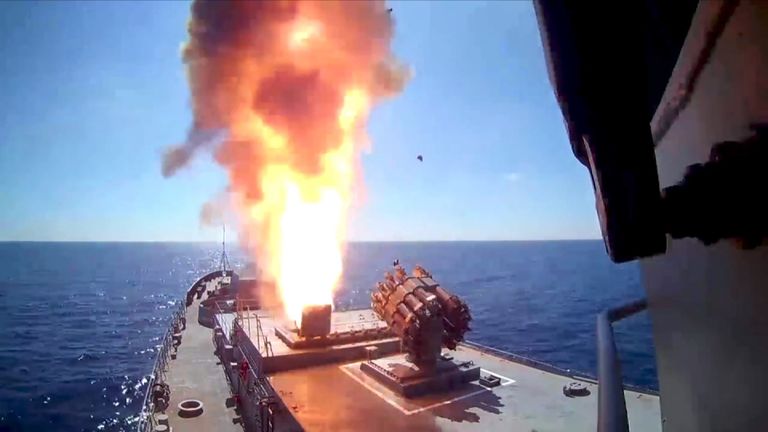IS death throes pose a threat far beyond region
The Syrian conflict is becoming increasingly more dangerous for the region as rival factions dash to seize land.
Thursday 22 June 2017 03:05, UK
An escalation in tensions between the US and Russia over Syria is causing mounting concern.
Russia has put its forces on a more aggressive posture in the skies over western Syria, warning US and coalition jets they will be shot down if they stray west of the Euphrates.
Against that backdrop, in a manoeuvre straight out of Top Gun.
In what the Pentagon called an "unsafe intercept" a Russian Su 27 fighter jet came within five feet of one wing of a US reconnaissance plane before returning from below the aircraft and narrowly missing the tip of its other wing.
Five feet closer and Russia would have provoked a major geopolitical crisis with the most unpredictable thin skinned president in American history.
The incident followed the downing of a Syrian jet by US led coalition forces.
Russia supports the Assad regime and issued its threat to coalition aircraft over western Syria in response.
This week Iran fired ballistic missiles from its territory over Iraq and into Syria.
Officially aimed at IS they were a clear statement to the US. A naked projection of power.
Like any war approaching an end game, the Syrian conflict is becoming potentially more dangerous for the region and beyond.
There is a scramble for territory as Islamic State's much vaunted caliphate collapses in the face of sustained military advances.
The death throes of IS pose a threat far beyond the region, as recent events in Brussels, Paris and London have borne out.
But the vacuum it leaves behind in Syria is also perilous.
The race to take Raqqa is bringing rival forces closer to each other. And rival factions and their international backers are in a dash to seize land it relinquishes further east.
As a return for the blood and treasure it spent in Syria, Iran wants a land corridor through Iraq, across its border with Syria and west to Lebanon where its proxy militia Hezbollah is based.
That brings it closer to clashing with the US-led coalition and the forces it backs on the ground.
And as the Assad regime tries to capitalise on the fall of IS its Russian sponsors risk tangling with coalition forces.
Russia's push back against a more robust American involvement in Syria could come anywhere as the Baltic incident seems to indicate.
The Obama administration trod carefully in this war, too timidly say his critics.
President Trump has fewer qualms and has also delegated more power to the generals past and present who command his military and national security apparatus.
Observers fear that could mean a blunter less calibrated response should events unexpectedly escalate.






